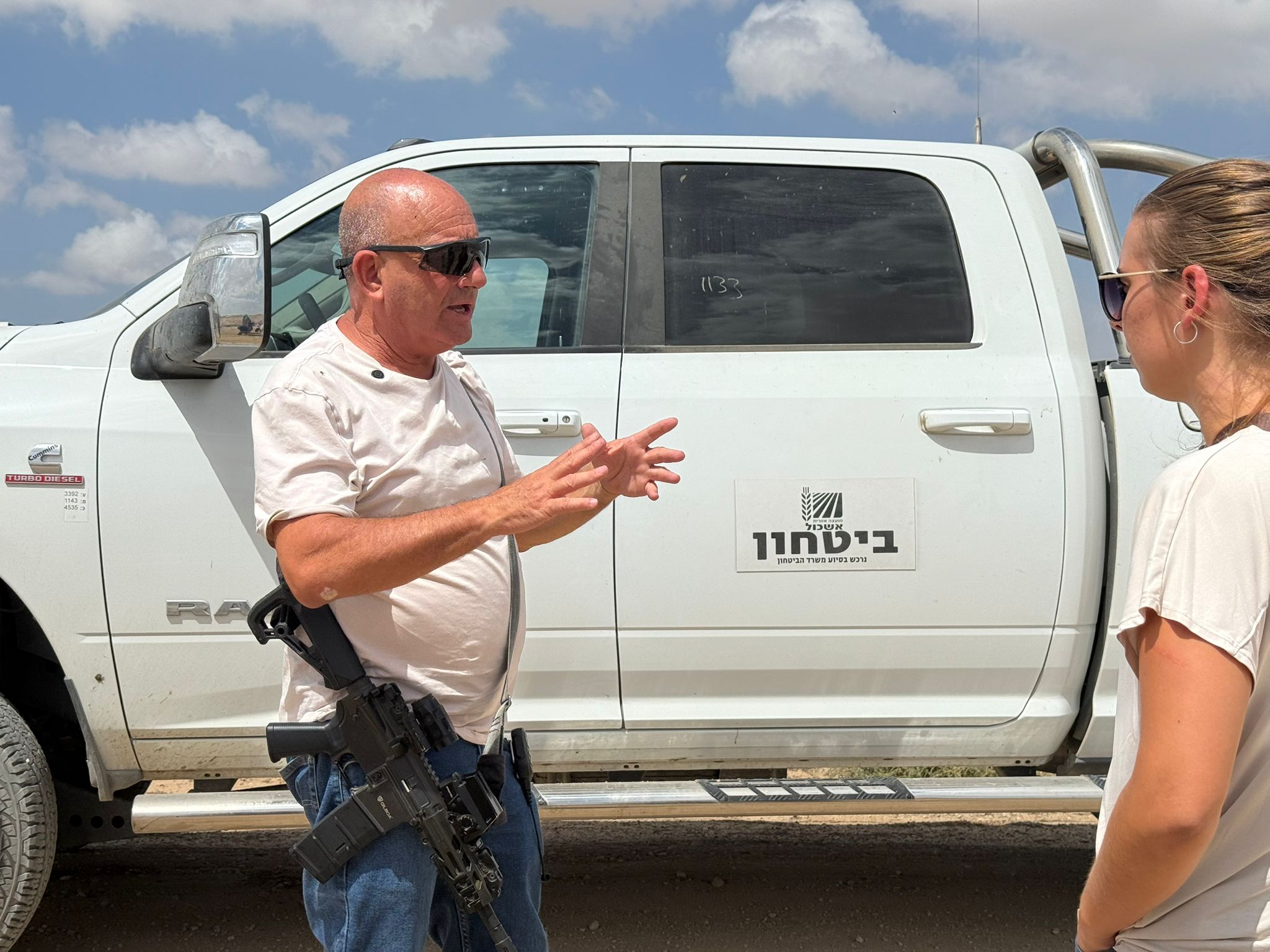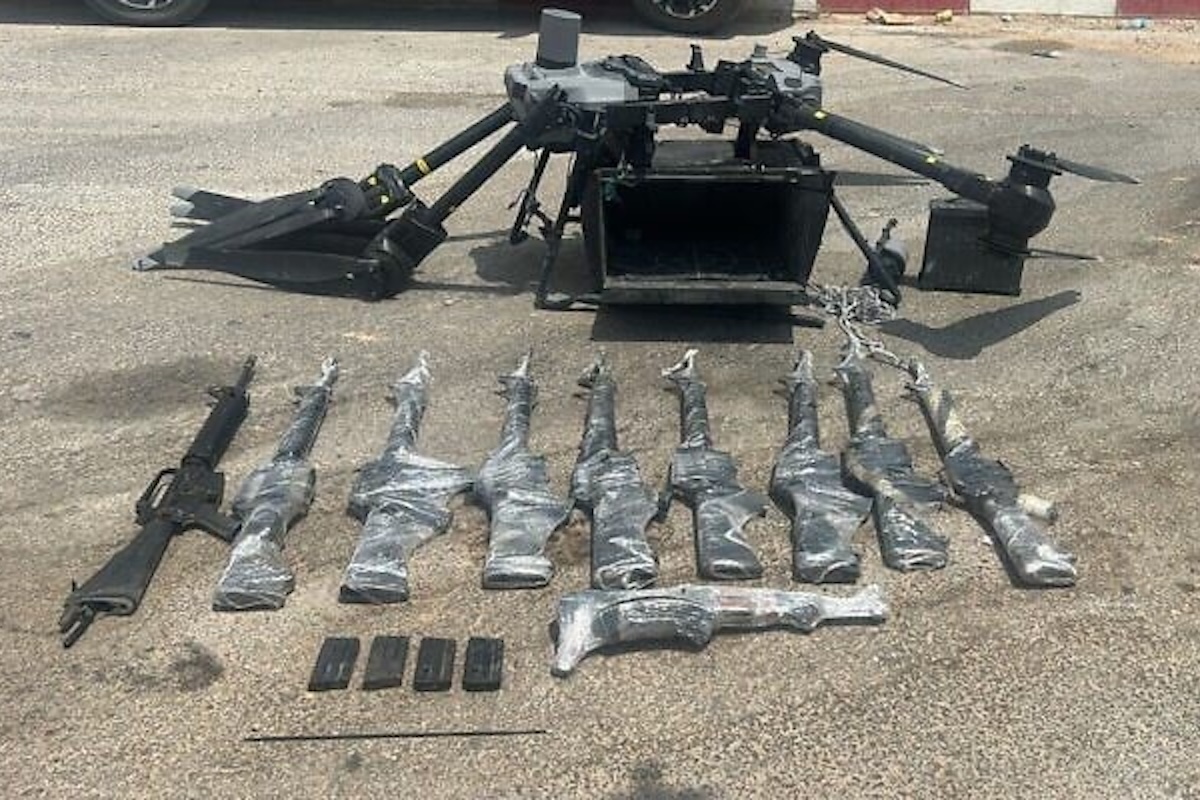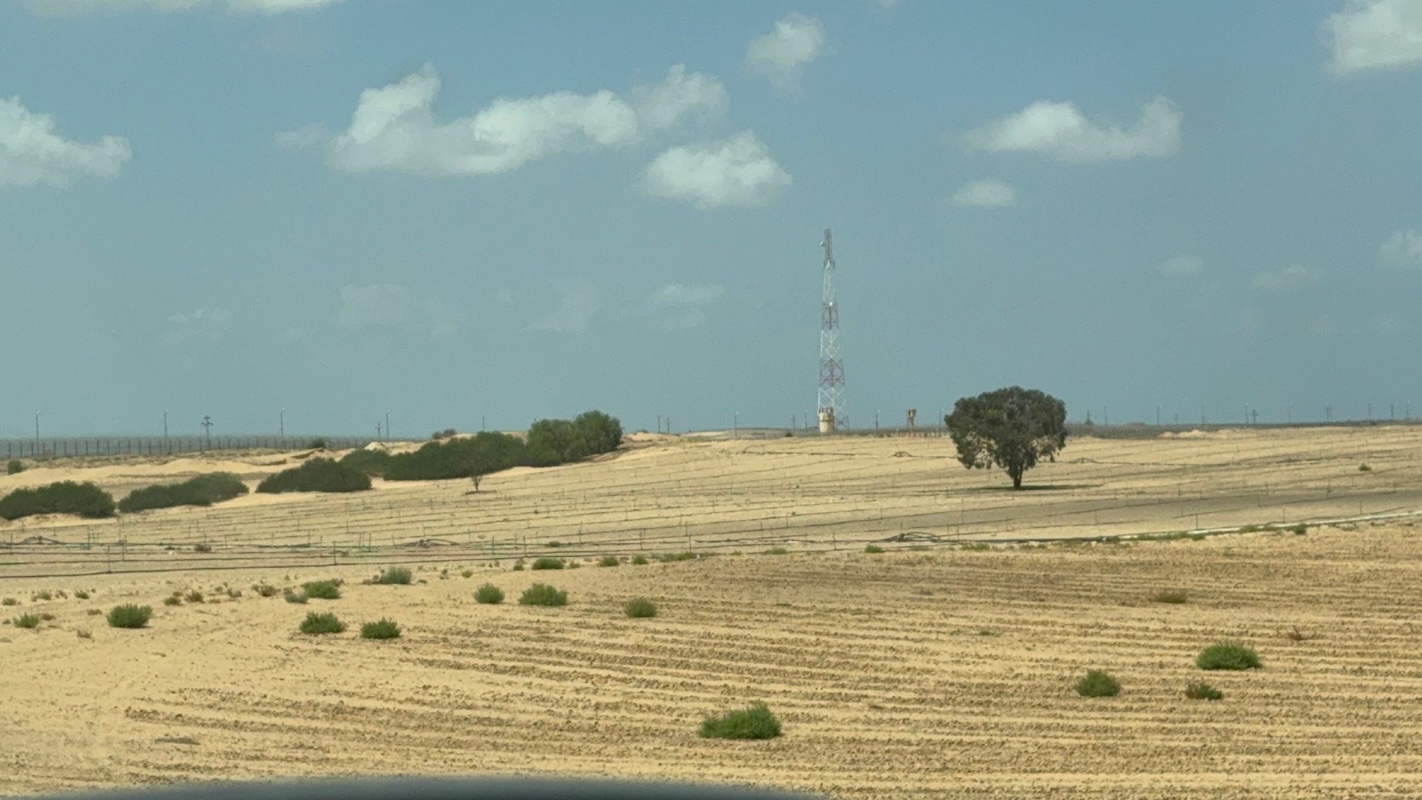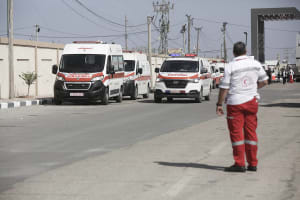Israel’s 8th war front: Daily weapons smuggling across Egyptian border

Military-grade weapons are being smuggled by drone into Israel from Egypt on a daily basis and are disappearing to unknown locations around the country, warns the head of security for the Eshkol region in southern Israel.
Eshkol Regional Council Security Chief Keith Ilan Isaacson said that cross-border smuggling is taking place on a daily basis, with many drones evading detection.
“There isn’t one day that there’s no smuggling. If it was only drugs, I wouldn’t be worried. But it's not just drugs anymore,” he said.

In a report on Monday evening, Israel’s Channel 11 also reported on this phenomenon which it claims has been hushed up by the IDF. Military correspondent Roy Sharon put the number of drones crossing into Israel from Egypt at a minimum of more than 100 a month, but it could be much higher, as there are no official estimates, he noted.
In a statement to Channel 11, the IDF said it is aware of these developments “and is actively working on the matter to improve operational deterrence in the area.”
The problematic border is 150 miles of mostly uninhabited rough terrain on the Israeli side. The smugglers are equipped with all-terrain vehicles that can outrun those of the army and other security forces. Even if a package is caught, the smugglers rarely are.
And more troubling, no one knows where the shipments are headed.
“Most probably those weapons are going to Judea and Samaria,” Isaacson surmised, adding, “There’s a lot of things we don’t know.”
Smuggling of all types over both the Egyptian and Jordanian borders has plagued Israeli security for decades. Israel has diplomatic ties with both countries, which have fought together to thwart smuggling attempts.
However, the use of drones has leveled up the smugglers’ capabilities. With drones, they are able to haul more and larger equipment in a shorter amount of time. They are also able to evade detection themselves – the smugglers can simply bail if the army spots the drone and arrives first.
“It’s much easier for them now – back then, they had to get to the border physically,” Isaacson said.
The aircraft, worth an estimated NIS 100,000 ($30,000), can reach 2 to 3 kilometers inside Israel. The smugglers unload the equipment, transport the drone back over the border, where it is repacked and then returned with new contraband.
“Just last week we caught a drone with four machine guns,” Isaacson said. “Big machine guns, usually used by a bigger soldier.”
All of this forebodes what Israel’s Defense and Security Forum (IDSF) warned about even before Oct. 7, 2023: The war over the land of Israel.
“It seems that Bedouins and Arabs are arming themselves and I don’t know why there are not massive arrests by the Shin Bet,” said Brig.-Gen. (Res.) Amir Avivi, founder and chairman of IDSF.
“In the coming months, the next challenge will be the fight over the land of Israel,” he continued. “Inside Israel is a mix of Bedouins, Israeli Arabs and Palestinians. It is much, much more difficult to define exactly what we are dealing with because there is a tendency to differ between Israeli Arabs and Palestinians, although on the other side, it's not differentiated.”

Avivi described the Arab, Bedouin and Palestinian populations as one coherent ecosystem, whether they live on the Egyptian side, in Palestinian territories or among Jewish Israelis in the State of Israel. He emphasized that his observations refer to broader social and political dynamics, and that not all Arabs are of the same mindset.
“When you smuggle with a drone and this drone lands in an area where an Israeli Bedouin takes the weapons, he might sell them to other Israeli Arabs or to Palestinians in Judea and Samaria or use them for his tribe,” he said.
When Avivi commanded this border from 2007, he encountered drugs, weapons and even human trafficking – women being smuggled across the border.
The border was determined in 1906, well before the State of Israel was established, as a result of negotiations between the British and the Ottoman Empire. The British took the water sources on what became the Egyptian side of the peninsula. The Ottomans were left with what is now Israeli territory.
Free movement continued until a fence was erected in 2010, effectively dividing the tribes.
“At a certain point, on both sides, these Bedouin tribes became very radicalized and very religious,” Avivi said, noting that on the Egyptian side, many also became associated with ISIS. “They started also dealing with terrorists and being involved in terror.”
Terrorists cross from Gaza into Israel through Egypt on several different U-shaped routes. One suicide bomber successfully entered Eilat in 2007 and killed three civilians. Avivi and his troops caught another would-be terrorist being passed from Israeli Arabs to Palestinians in the West Bank after he had been couriered through Egypt by Bedouins on that side.
“It is all interconnected,” he said.

As far as what is to come, Avivi said it may not be as massive as the Hamas attacks against Israel on Oct. 7, but he believes something troubling is looming.
“I think it is very planned. I cannot say it’s a plan as detailed as Oct. 7, but there is a general tendency to arm in order to use it at the right moment,” he said.
His organization has warned the government, he said.
“I think that Israel sees trees; they don’t see the forest, and they don’t see the big picture of what's going on. They are looking at events and not connecting the dots.”
Isaacson, who commands a security force comprised of both police and civilian volunteers in the Eshkol Region, said that every parcel they have managed to intercept is worth about one million shekels ($300,000). The weapons caught are usually Western models such as M16s and Glocks, Isaacson said.
Isaacson’s security forces and the police work with the Israeli army, mainly “spotters” watching surveillance cameras on the border to track the deliveries.
A military officer stationed on the Egyptian border told Channel 11 that even though they may spot the drones coming in, “by the time our forces arrive in the area, the smugglers are already home. It's very frustrating. We only occasionally manage to neutralize a drone.”

Nicole Jansezian is a journalist, travel documentarian and cultural entrepreneur based in Jerusalem. She serves as the Communications Director at CBN Israel and is the former news editor and senior correspondent for ALL ISRAEL NEWS. On her YouTube channel she highlights fascinating tidbits from the Holy Land and gives a platform to the people behind the stories.
You might also like to read this:

















